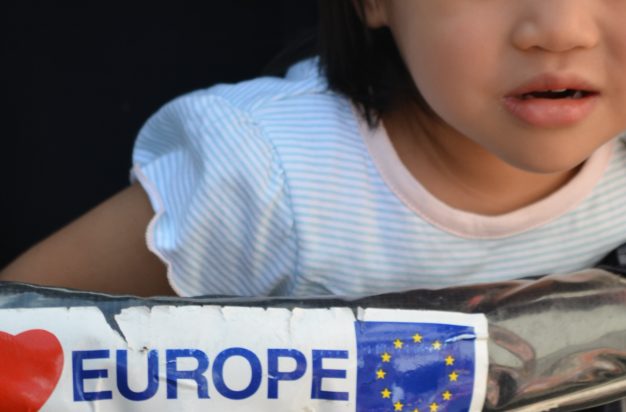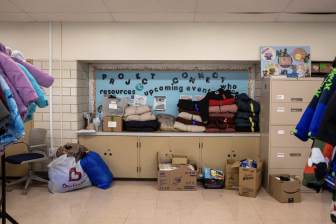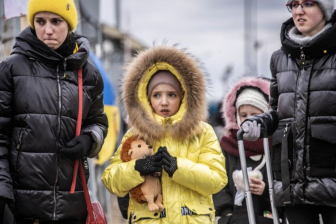
Deep concerns by UNICEF about ‘pushbacks of children’ on Europe’s borders
UNICEF says it is ‘deeply concerned’ at spiralling reports of refugee children being pushed back or held along Europe’s borders.
The charity says that in 2021, children have been repeatedly caught the midst of political and border management disputes on the EU’s external borders, a situation which calls for a renewed commitment to the protection, safe-guarding, and best interests of children.
Afshan Khan, Special Coordinator for the Refugee and Migrant Response in Europe, describes the situation as ‘shocking’, and a direct violation of the United Nations Convention on the Rights of the Child.
“Children and their families have the right to seek asylum and have their protection needs evaluated on an individual basis,” he said in a statement.
“UNICEF recognizes member states’ sovereignty, the challenge posed by irregular migration and the need for border management processes that are safe and orderly, while upholding human and children’s rights. We join our UN sister agencies at UNHCR (United Nations High Commissioner for Refugees), IOM (Organisation for Migration) and OHCHR (UN Office for Human Rights) in condemning the use of pushbacks, wherever they occur, as they violate international law and put children’s lives at risk without considering their best interest or the risks they may face upon return,” he said.
Earlier this year we reported how the Save the Children had learned how hundreds of unaccompanied minors were facing violence and abuse as they travel across EU borders, and being illegally rejected from entering some countries.
Cities have pledged to help
Over the past 18 months many of the EU’s biggest cities have been taking in refugee children, most of them from Eastern Europe and the Balkans. In April last year ten cities wrote to the EU, pledging to offer a home to vulnerable youngsters to ease their plight. Amsterdam, Barcelona, Leipzig and Vienna were among those cities offering to help, however there has sometimes been political disagreements between city leaders and their respective national governments about how to manage the numbers.
Afshan Khan continued: “There is a need for a renewed collective political commitment for the protection and safeguarding of all children in Europe—regardless of their migration status. Migrant children should not be instrumentalized for political purposes and their right to safely claim asylum must be guaranteed.
“UNICEF stands ready to work with governments across EU, Eastern Europe and Western Balkans, UN organizations and civil society to provide urgent humanitarian support, protection and child-friendly accommodation for all children in need at international borders, and calls for the urgent adoption of immigration reform measures that uphold children’s rights in countries of origin, transit and destination.”
“Together, we can – and we must – ensure the rights of all children are understood, protected, and promoted everywhere. A child is a child. No matter the circumstances.”
UNICEF, UNHCR and IOM have worked closely to establish standards for which children would be identified and prioritized for relocation. The agencies’ joint document, “Minimum Child Protection Standards for Identification of Unaccompanied and separated Children to be Relocated from Greece to other countries in the European Union” asserts that these standards must be firmly rooted within international child rights legal frameworks, including the Convention on the Rights of the Child, and the 1951 Refugee Convention which lays out the considerations under which international protection needs would be established.




